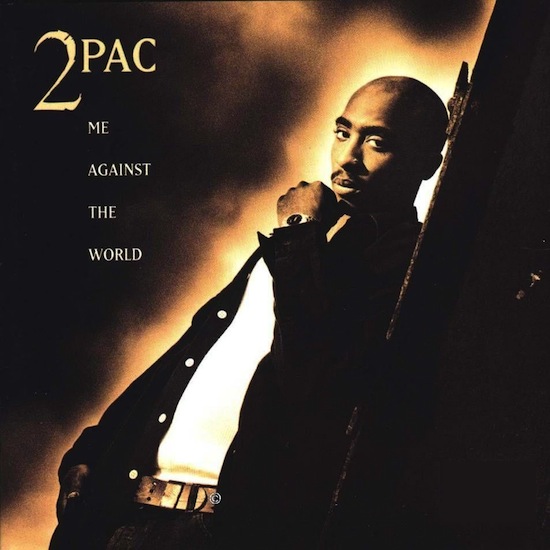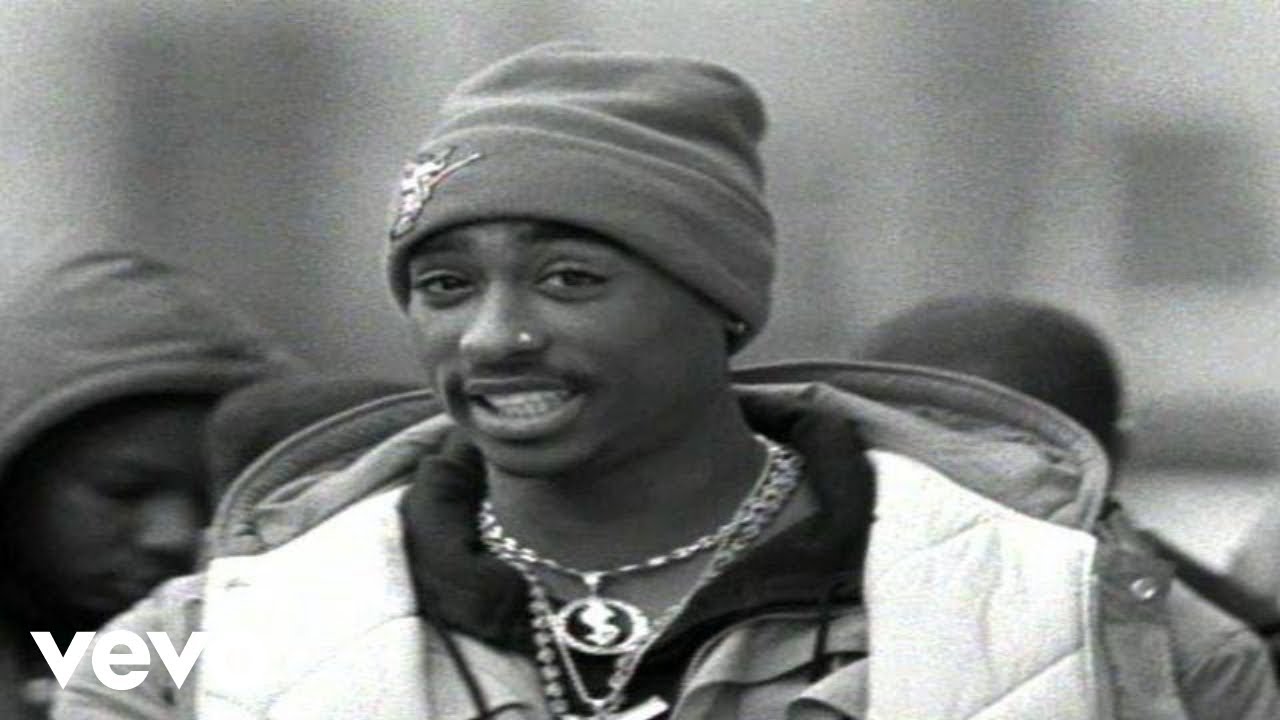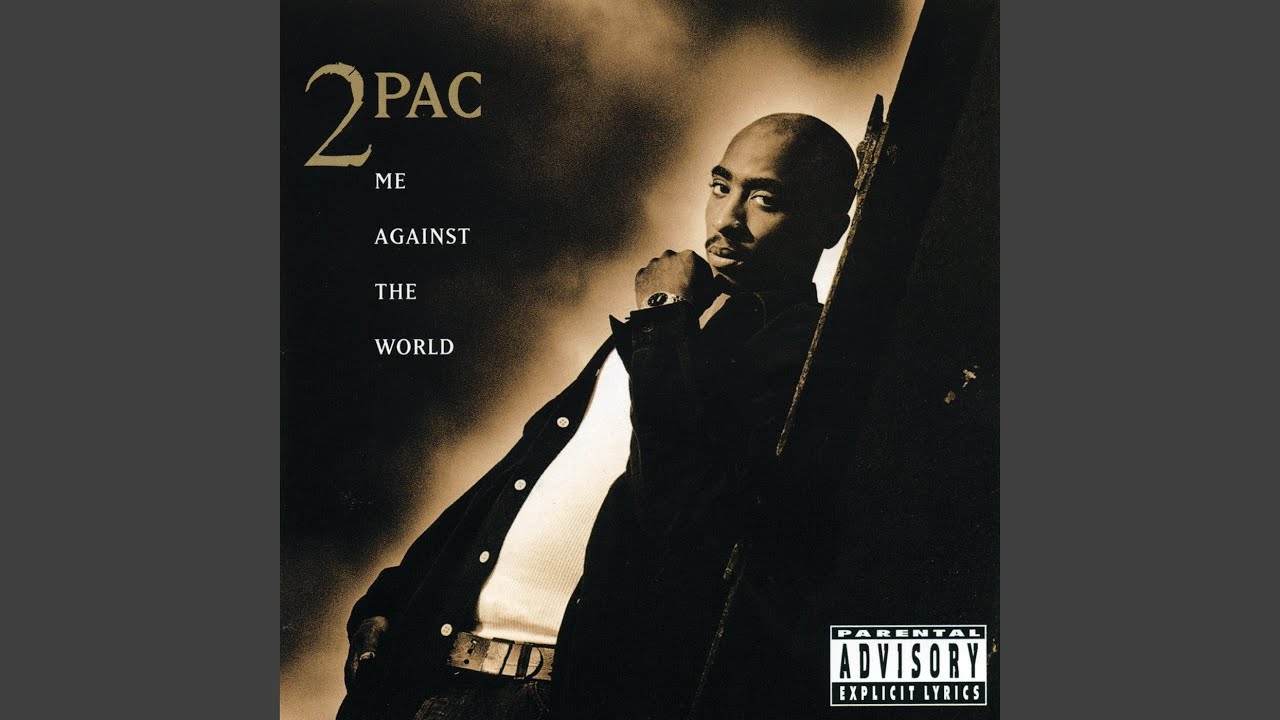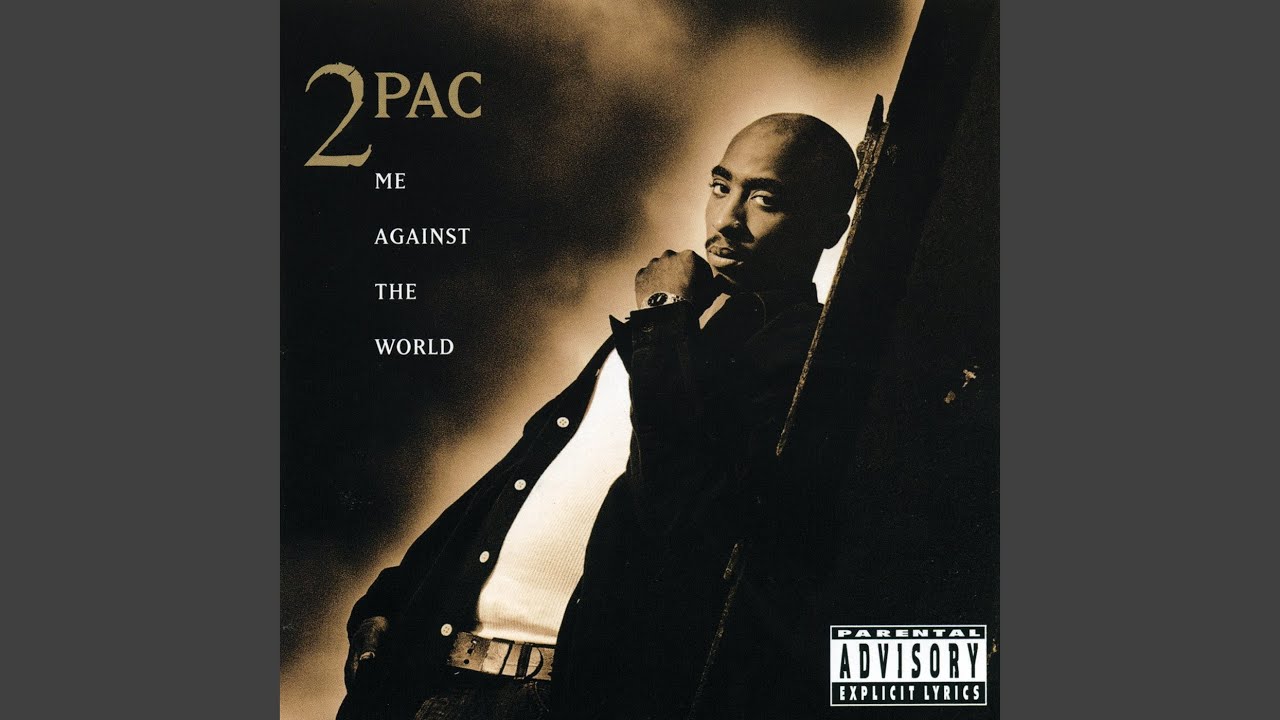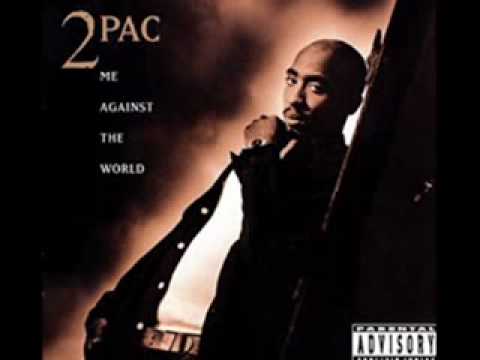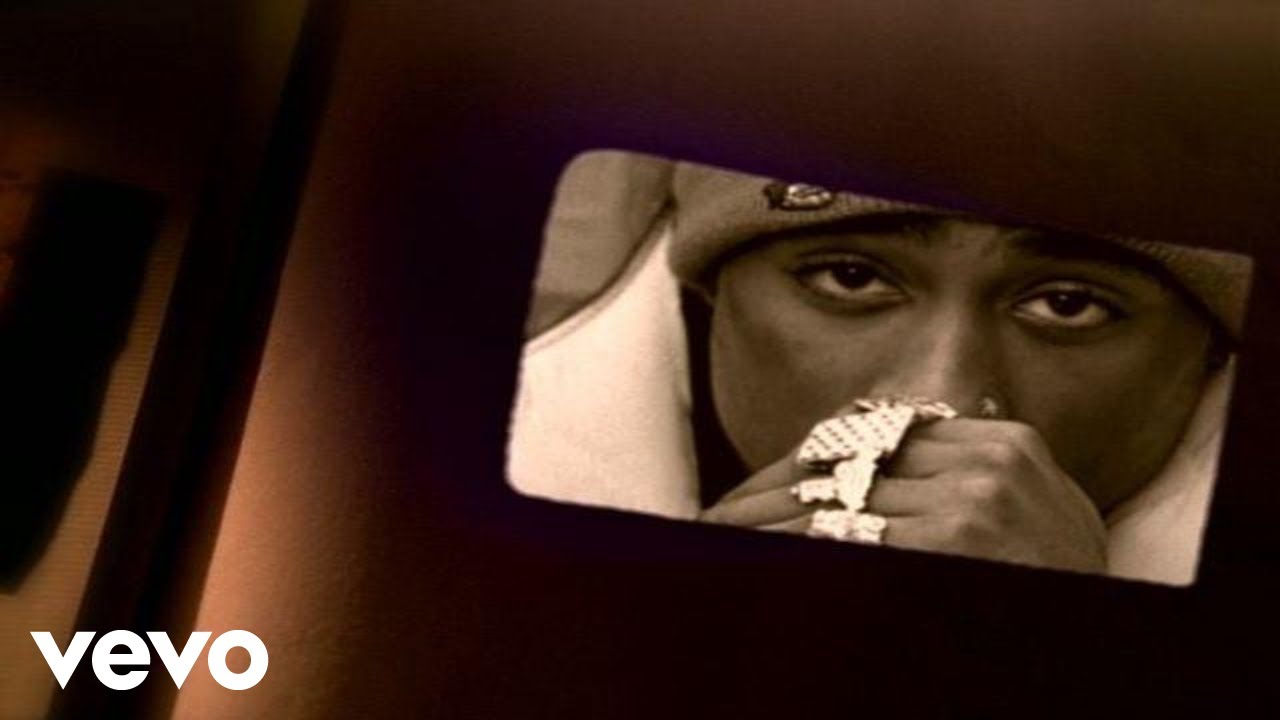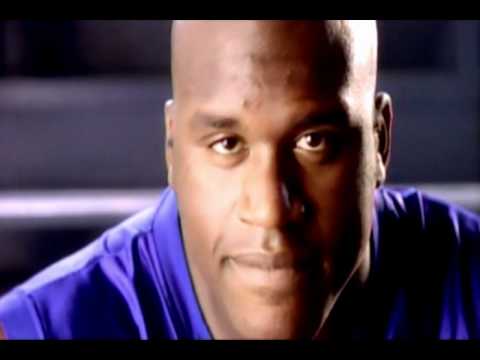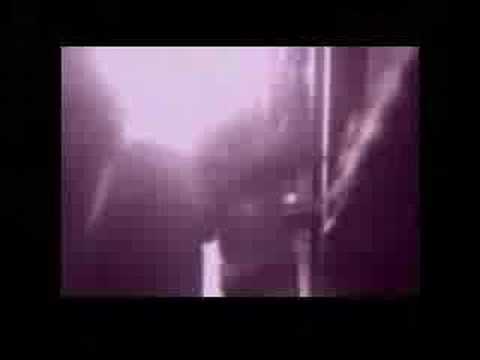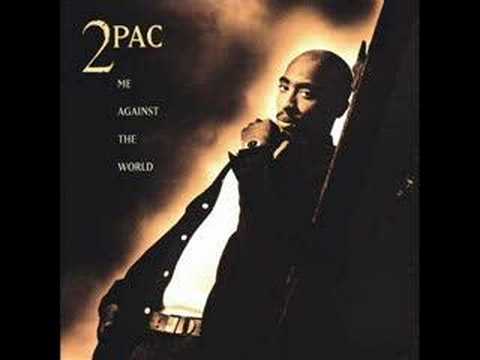Let’s get this said right at the start. There’s a reason discussion of 2Pac tends to avoid detailed re-investigation of his records and remains almost exclusively devoted to what he means, what his legacy may be, what he stood for and has come to stand for, his status as hip hop’s James Dean, the elaborate theories about his murder or the even more contrived fictions around his supposed faked death and hidden earthbound afterlife.
That reason is that his records, for the most part, weren’t particularly good: certainly they are usually the least interesting parts of the 2Pac legend. An occasionally inspired writer with a distinctive vocal presence (albeit often, in part, as a result of each vocal being double-tracked), Pac nevertheless lagged a little off the pace when it came to making records. Stripped of their context – not that that’s possible to do, entirely – his albums mostly lack those often indefinable intrinsic qualities that can turn pop records into cultural landmarks.
Each one, in retrospect, has attracted admirers who claim it as a monolithic achievement: but this is only possible to do when the back story is factored in and the foreshadowing of the dramas yet to come can be projected onto the albums through history’s prism.
Some qualification needs to be made to this necessarily if unintentionally provocative statement, of course. His solo debut, 2Pacalypse Now, released to relatively little notice back when he was known primarily as an acolyte of Digital Underground and was yet to become a bete noire of the American establishment, is considered by some to be a masterpiece: and the record certainly has enough substance, in songs like the single ‘Brenda’s Got a Baby’, to merit serious attention and reappraisal with the benefit of the objectivity that the passage of time affords.
Each of the six albums (including the group effort Thug Life Vol. 1) that were released either during his life time or in the form he had planned (as opposed to the posthumous discography which exceeds the intended releases but necessarily lacks his input as a guiding force) includes at least a couple of tracks that have proved durable not just in a popular, anthemic sense, but as successful representations of a singular creative vision. All Eyez on Me was his biggest seller and got the best reviews at the time it was new, but a lot of that can be ascribed to accidents of the historical moment: a few commentators called it right at the time, and over the years a few more will have reached the inevitable conclusion that it’s a bloated and often horrible release, a kind of vomiting of frustration and aggression balled up during 2Pac’s prison stint, with him egged on by Suge Knight’s game plan for Death Row domination of the marketplace. But, truth be told, he only made one truly great album: and, at the time, it wasn’t widely considered as such.
Never mind the difficulty of separating the myth from the reality some 18-and-a-half years on from his death: the problem many people had with Me Against The World when it was new was the superfluity of context and baggage it brought trailing in its wake. The opening introduction sets part of the scene more than adequately, as what sound like actors recreating TV news broadcasts – but which could just as easily be actual snippets of real reports – trot through a few of the headlines the rapper-actor had made over the preceding couple of years.
If you’d been a Hollywood scriptwriter and you’d come up with the 2Pac saga, you’d have been laughed out of every pitch meeting for concocting something so preposterous and unlikely. The child of a jailed Black Panther, he was in prison before he was even born. He took up acting as a pre-teen, and after turning to music following a nomadic childhood, his first album was lambasted by the White House when it was cited as evidence in defence of a young man charged with shooting a state trooper; its critiques of police brutality were conflated with encouragement of crime, and a narrative of a messenger taking incoming shots from the establishment as well as a burgeoning array of less rarefied enemies was set.
Then came the shootout with crooked cops in Atlanta which saw 2Pac walk free from court, transforming him from being just another rapper peddling tales from the streets to have him emerge as a fully-fledged counter-culture superhero. The second act began with the horrific and ugly sexual brutality against a female fan he did not deny being a part of, and continued with the shooting that left him in hospital on the eve of his sentencing and led to him being pictured flipping the finger to paparazzi as he was being stretchered into an ambulance. It was a narrative that had truth trumping fiction at every turn, and it was surely inevitable that its protagonist would seek to capitalise on his experiences by turning them into the stuff of latter-day mythology. Whatever else it might have turned out as, this could never be just another hip hop album.
At the time, the record was perceived in many quarters as self-serving and disingenuous: a transparent ploy to win sympathy and support from a man who had done much that was reprehensible yet who sought to portray himself as a misunderstood victim. It was a logical reaction, but it was a reaction to the sagas that raged around the record, not to the record itself – just as those who have later decried 2Pac’s martyr complex can only really do so because the tracks that predicted his violent and untimely death ended up coming true. If Me Against The World can be considered to be making excuses, that’s because of what it omits, not what it includes.
Throughout the album, 2Pac studiously avoids commenting on the sexual-abuse case that saw him unavailable for promotional duties at the time of its release save those that could be carried out from inside Clinton Correctional Facility near Dannemora in upstate New York. This is the part of the story that 2Pac apologists – and not only has he had more than a few, he carried out the role for himself often enough – are unable to spin in a positive way. Even if we accept his own version of events, as related to Kevin Powell in an interview published to coincide with this album’s release in Vibe magazine, he invited a woman he had previously had sex with to his suite in the Parker Meridian Hotel in New York and left the room at a point where members of his entourage had begun to assault her; if you instead prefer to believe the victim’s account, published as a letter to the editor in a subsequent edition of Vibe, 2Pac was one of those physically preventing her from escaping while his friends raped and sodomised her.
The judge largely believed the victim, condemning "an act of brutal violence against a defenceless woman" and sentencing 2Pac to between 18 months and four-and-a-half years for first-degree sexual abuse. He would continue to proclaim his innocence, but if the account he gave to Powell were the truth, he would still have been guilty (albeit perhaps as an accessory rather than a key protagonist). As far as the published record is concerned, he went to his grave believing he had done nothing wrong, which means that the redemption many fans want to see as a key theme in his story was never an option that he allowed himself to choose.
You can’t assess the album without acknowledging this hateful preamble, and it’s the one aspect of its creation that sits most uncomfortably alongside the self-image 2Pac spends his time projecting here. This was someone who stood up fearlessly to gun-slinging adversaries, who went toe-to-toe with crooked cops and righteously beat the rap, who had been at death’s door before checking himself out of hospital against doctors’ orders to turn up for sentencing in a wheelchair; someone who writes throughout this record of confronting demons without backing down and who turns pain into energy that fuels a creative and ideological fire. For him to avoid the truth about the rape and his part in it is an act of unconscionable, incongruous and thus noteworthy cowardice that has to stand forever as an immovable counterweight that surely overbalances the good that he did and the empathy that much of this record proves he truly and deeply felt.
This inevitably skewed the discussion around the rest of the album, and you can entirely understand why those contemporary critics who chose to see it as bratty, whinging or childishly myopic would have formed such an opinion. "If Shakur intended Me Against The World as an act of vindication, a grand explanatory manifesto that would rally sympathy behind him – and no other rationale is offered – he’s judged it very badly indeed," wrote Andrew Mueller in Melody Maker, before ending his review with a metaphor that recast 2Pac as a hip hop Violet Elizabeth Bott: "He projects himself not as an honourable man wronged but as an unpleasant, sulky miscreant who, on being served a generous helping of just desserts, is not going to eat any of it – can’t make me, I hate you, you smell – and will, if necessary, hold his breath until he’s sick." Other reviewers made similar points, though without Mueller’s abundance of caustic wit. He – they – were clearly right. But this is only half of the story.
It requires some considerable feat of mental, ethical and emotional acrobatics to be able to tackle this album without the Parker Meridian outrage repeatedly dragging itself to the foreground and obscuring everything else: but when and if that’s possible, what emerges from the record is a coherent and compelling vision from someone who, however blinkered they were about that one appalling episode, was capable of demonstrating significant and extended self-awareness when it came to pretty much every other aspect of their complicated and fractious existence.
So while the coldly clinical and defensive paranoia of ‘Death Around the Corner’, the underwritten and slightly half-cocked ‘Fuck the World’, or the set-closing and distinctly afterthought-like ‘Outlawz’ can convey an sense of bluster being deployed to prevent examination of a sociopathic heart, much of the rest of the record goes a long way to proving that those parts of 2Pac he had not yet decided to isolate from the rest of humanity were unusually engaged with the world outside his dramas, and that when the mood took him he was capable of a depth of understanding of other people and their pain that required not just humility and insight, but the courage to expose his own frailties and vulnerabilities.
All of which, of course, merely serves to remind you that there was this one huge thing he wasn’t going to allow himself to admit, and suddenly you’re back to treating the two-thirds of the record that is admirable with deepening suspicion or outright cynicism. But the fact of the matter seems to have been that the duality embodied even in his rapping moniker was a reality 2Pac was doomed to struggle with daily. There was a battle going on inside, and this record was made when the light held a slight advantage over the gathering darkness. The moment proved fleeting: but while it lasted it was powerful, compelling and captivating.
Take ‘Lord Knows’, and try as hard as you might, you can’t deny those opening lines. "I smoke a blunt to take the pain out/And if I wasn’t high, I’d probably try to blow my brains out/I’m hopeless," he raps, the bleakness of the vision disconcerting enough without the knowledge of the fate that lay in wait in Las Vegas a scant 18 months later. That he follows this with "They shoulda killed me as a baby" is merely a twist of the knife he’s just plunged with a punch between the listener’s ribs. Talk about soul-baring: this is the stuff that took him from the CD racks and the radio playlists and into that realm where fans want to ink his image on their bodies. This is clearly not an act, not a plea for sympathy made hand-wringing and emotional to garner unwarranted pity.
"Hopeless" is a word that he keeps returning to, a hammer-blow of despair thumped out in two syllables, the cynical alternative meaning one he’s almost goading you into choosing to take just so he can deepen his intended interpretation by tacitly denying it. It’s there in ‘It Ain’t Easy’, where "the drama got me stressin’" to the point where he "can’t cope"; during ‘Young Niggaz’ it’s used to describe the environment he grew up in and that his fame and wealth helped him escape, but which he remained unable and unwilling to leave behind; in ‘Death Around the Corner’ it’s part of a destiny he’s unable to fight, a trajectory he’s powerless to alter ("I can’t give up, although I’m hopeless, I think my mind’s gone/All I can do is get my grind on").
This absence of optimism – even of any reason to think that optimism might one day become an option – allows him to build a foundation for an album that ends up being able to transcend the obvious comparison with Biggie’s Ready to Die because, for most of the time, it’s abundantly clear 2Pac is writing about himself without any need to caveat the lyrics by suggesting a filmic narrative framing device. Biggie wanted to be able to talk about the crack-dealing nihilist with nothing to lose while distancing himself from the worst excesses by giving himself the get-out that his lyrics were not drawn exclusively from the real-life author’s thoughts and feelings: on Me Against the World, for the most part, you never get the sense that the character 2Pac – a skilled actor – plays in the songs is anyone other than 2Pac himself. That’s why we believe him, and that’s the facility he brought to bear in his art that turned him from a star into an icon.
Then, of course, there’s ‘Dear Mama’, Exhibit A for those who felt the record was a ham-fisted attempt to airbrush 2Pac’s public image. Its most oft-quoted couplet, where he addresses his mother’s crack addiction, can be taken as crass and artless, or as courageously blunt – but it’s the lines that follow that really cut to the chase:
"I finally understand
For a woman it ain’t easy tryin’ to raise a man
You always was committed
A poor single mother on welfare – tell me how you did it
There’s no way I can pay you back
But the plan is to show you that I understand
You are appreciated."
In the cynical interpretation, it’s a desperate bid for public affection by appealing to the one thing (excepting perhaps apple pie) that is guaranteed to prove a unifying force binding Americans together. But taken at face value this is powerful stuff, especially coming at a time where such attitudes were liable to be considered evidence of a lack of steel as hip hop accelerated into the tightening curves of that downward spiral it was on – the music’s possibilities narrowing by giving ever-greater weight to increasing excesses of hyper-masculine bravado. To a non-rap-fan it’s bound to come off as trite and mealy-mouthed; but they were never the intended audience. The fact of the matter is that this wasn’t the safe record its detractors sought to imply 2Pac had made.
However, in the second verse of ‘Dear Mama’ where he lays in to his absent father, the side of his soul that the artist lets us glimpse helps give some clues to why he ended up locked in the torment he appears to have spent most of his adult life trying and failing to fight his way out of. Consider for a moment a record by another rapper of vast public stature but modest microphone skills – the basketball player Shaquille O’Neal. In ‘Biological Didn’t Bother’, a song released in November of ’94, right around the time 2Pac would have been working on this album, O’Neal tells a similar story of a missing parent, but is able to speak lovingly and at length about his stepfather, even going so far as to say, repeatedly and in such a public forum as what was at that time a pretty high-profile release, that he considered his stepfather to have been his real dad. Shaq was clearly an exception: rap was his sideline, and as the subject of approving metaphors he’d been a part of hip hop culture long before he got the chance, via his favourite group the Fu-Schnickens, to make records of his own.
But that’s not the only reason 2Pac can’t follow Shaq down that more cathartic path. 2Pac appears to have had a decent relationship with various men who passed through his life during childhood, but the lack of a father figure seems to have left deep wounds that time and effort were unable to heal. The contrast between Shaq’s ability to highlight the positive and 2Pac’s apparent need to fixate on the negative is marked. His life – as described in his music and what survives of his writings and the glimpses into his psyche that he gave to interviewers – appears to have been defined by absences and emptiness.
Sonically, time has been kind to Me Against The World. The critics who took against it at the time often decried the beats, but from 25 years’ distance it stands up well enough to its contemporaries. It cannily ranges across the hip hop map, taking in east-coast grit and west-coast shine – roughly half the record resounds to the boom and bap of New York while the rest shimmers in a G-funk haze. The styles converge in ‘Old School’, the one moment of unalloyed joy to be found on the album, where 2Pac recalls his childhood in the east and his love of the pioneers of the art form, dropping more than 30 names of artists, records and DJs into a lyric that also finds time to reminisce on the people, the atmospheres and the fashions that he absorbed growing up in the Big Apple. Curiously, the beat – which flies a Grand Puba sample over some woodwind and thwacking drums – was the work of Soulshock, who wasn’t from the east coast or the west coast but from Denmark. Elsewhere, 2Pac reunited with his Digital Underground mentor, Shock G, who had a hand in producing two tracks, one of which (‘Fuck The World’) he also raps on. There’s perhaps a sense of too many cooks spoiling the overall broth, though the set remains homogenous enough to work. No one producer or style is allowed to dominate, which means you’re given a chance to believe that the unifying sonic element will be Pac’s choice of which beats he used and which other offered ones he rejected.
Easy Mo Bee, who’d done so much great work on Ready To Die, contributes some similarly crunchy beats to the first proper track, ‘If I Die 2Nite’, setting up Pac’s first on-record "collaboration" with Dr Dre (via samples from the latter’s ‘Deep Cover’) and lending a minor-key, dislocated and desolate atmosphere to a track that finds the rapper more than up to the challenge of encapsulating a mood through abstract lyrics that suggest meaning rather than explicitly state it – the song works by insinuating overarching themes between shattered shards of verbal imagery that he reassembles like a mosaic. Some of those images would go on to fuel other rappers’ careers – "I wonder if heaven got a ghetto for thug niggas"; "addicted to drama, even mama couldn’t raise me": the pain and the paranoia would become a trope in hip hop, but here this is all still fresh.
There’s an oblique nod to Biggie (the "callin’ the coroner, come collect the fuckin’ corpse" recalls ‘Warning’ and its "call the coroner – there’s gonna be a lot of slow singin’ and flower-bringin’ if my burglar alarm starts ringin’") but, especially given the Quad shooting and the interviews in which 2Pac’s anger at what he perceived to be his fellow rapper’s part in setting him up spilled over into claims that Biggie had stolen elements of Pac’s writing style, this seems less like an act of respectful competition between peers so much as an assertion of rights over a creative mindset. Perhaps ‘Heavy In The Game’ follows this pattern too: it is surely more than a coincidence that, with Lady Levi’s ragga hook, it bears more than a passing resemblance to Biggie’s ‘Respect’.
It is inevitably tempting, if obviously pointless, to muse on what might have happened had 2Pac not chosen to sign with Death Row on leaving Clinton after serving only nine months of his sentence (he was freed on $1.4m bail – posted by Knight – pending an appeal against his conviction). Had he left prison at the same time and ended up at more or less any other label, it’s not difficult to imagine that the next record he made may well have followed the more ruminative and self-exploratory nature of Me Against The World.
For someone who had so many of the key attributes one might look for in a leader, 2Pac seems to have also been very easily led. That missing father looms at the background in any assessment of his last months. Had there been that male figure for him to look up to during childhood, would he have formed the same kind of bond he evidently did with Knight? It’s all too easy to read All Eyez On Me as an outpouring of thanks to the man who’d freed him from prison. Battle rhymes, gangsta cliches and lowest-common-denominator smut weren’t the way 2Pac had chosen to head before he went to prison, but that was the stuff Death Row were good at selling large numbers of copies of, so it’s entirely possible 2Pac wrote and recorded the album in that form principally as a means of showing loyalty and gratitude to the person he credited with giving him his freedom.
Instead, he would reach the end of his life feeling constrained by a different kind of prison, trapped inside a character someone else had written for him, chafing at the bounds the outside world sought to impose on what he did and how he did it. He has been lionised in death in no small part because he is considered to have possessed a wild and untameable spirit, yet perhaps the most ironic aspect of 2Pac’s perpetually warring dualities comes with the realisation that his final months were spent doing others’ bidding. Yet it is All Eyez On Me and The 7 Day Theory – records fuelled by bile, hate, revenge and spite – that seem to get the majority of his worldwide fan base feeling misty eyed. Our world is increasingly minded to respond only to the surface, not to the depths. 2Pac’s story remains resonant and its impact will continue to be felt for decades, but the chances of its more important truths ever being widely appreciated look set to remain vanishingly small.

